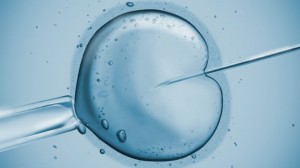One of the most frequent is the existence of tumours that induce an over-secretion of this hormone. These women present with chronic infertility due to anovulation. Thanks to the work of the Inserm researchers from unit 693 “Steroid receptors: endocrinian and metabolic physiopathology”, the intimate mechanism of the hyperprolactinaemia alterations affecting reproduction in mice has been discovered.
This work has been published in the journal JCI.
Hyperprolactinaemia is a major cause of anovulation and is responsible for menstruation disorders and infertility. However, not much was know in detail of the mechanisms that cause this pathology. All that was known was that an increase in prolactin in women disturbed one of the most important hormones affecting reproduction and fertility: GnRH .
Up until now, we had been unable to understand this inhibition of prolactin in the GnRH neurons, because most of these neurons did not express the prolactin receptor.
So the researchers put forward another hypothesis: what if it was due to the indirect action of other molecules? Read full article.
